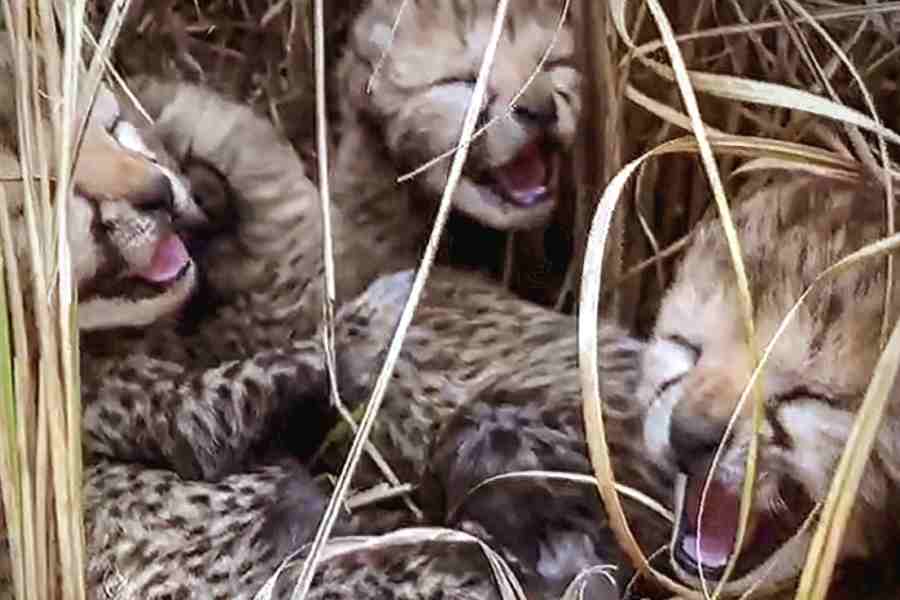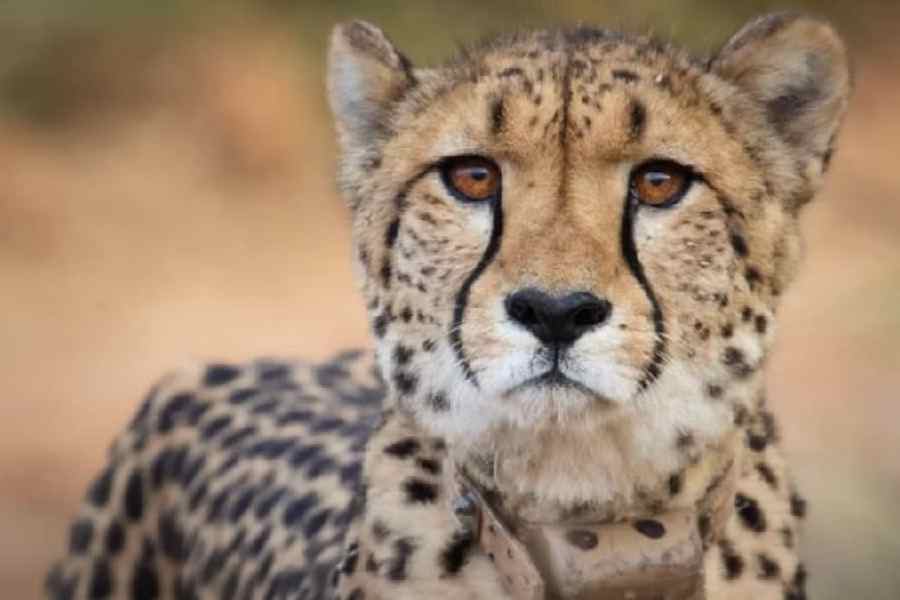A cheetah cub born in Madhya Pradesh’s Kuno National Park nearly two months ago died on Tuesday, the cheetah introduction project’s fourth loss that wildlife experts have attributed to nature’s “survival of the fittest” rule.
The cub, which was one of the four cubs born to a Namibian cheetah on March 27, died from apparent dehydration and weakness within the fenced area housing the mother and cubs, project officials and experts said.
The officials said a monitoring team had noticed on Tuesday morning that only three cubs were moving with the mother, and the fourth was lying still, appearing weak. A veterinary team tried to treat the cub but it died.
Three South African experts guiding India’s cheetah introduction project said the cub’s loss is “unfortunate”, but well within the expected mortality for cheetah cubs. The cub mortality rates are high for wild cheetahs. For this reason, they said, cheetahs have evolved to give birth to large litters compared to other wild cats.
“The death was attributed to dehydration. Weaker cheetah cubs in a litter will typically suckle less than their stronger siblings. This death should be viewed within the context of survival of the fittest,” the experts said in a statement released by The Cheetah Metapopulation project, a conservation initiative that maintains clusters of cheetahs across South Africa.
The statement was issued by Vincent van der Merwe, manager of the Metapopulation project, Adrian Tordiffe, an associate professor of veterinary sciences at the University of Pretoria, and Andrew Fraser, a veterinary surgeon in South Africa.
As part of the natural selection process, the weaker cheetah cubs will be eliminated from the gene pool. “This ensures that only the fittest and strongest survive, to the benefit of wild cheetah survival,” they said.
Prior to the cub’s death, India’s cheetah introduction project had lost three cheetahs — a Namibian cheetah died in March from kidney disease, a South African cheetah died in April from an undetermined cause, a second South African cheetah died earlier this month after being injured by male cheetahs during mating efforts.
The Union environment ministry had flown in eight cheetahs from Namibia into Kuno in September last year and 12 more from South Africa in February this year as part of the project that seeks to establish clusters of wild cheetahs in India.
Seven cheetahs are in the open unfenced wild in Kuno while the other cheetahs, including the mother and three cubs, are within fenced areas. Conservation scientists say they hope to learn about Kuno’s cheetah-carrying capacity through observations of the cheetahs that have been released there.
Experts said they do not expect the deaths to adversely impact the project that has taken into account potential losses. “Some cheetah (deaths) are to be expected and additional lessons will be learnt in the process,” the South African experts said in the statement.











